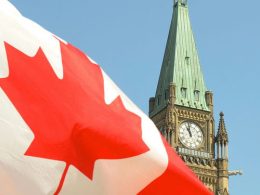by Darren Williams, AllianceBernstein
European policymakers are responding flexibly and proactively to the risk of a severe economic downturn. But more is needed to avoid a chain-reaction of bankruptcy and unemployment rippling through the economy.
Until recently, the coronavirus—as seen from a European perspective—was all about weaker Chinese demand growth and global supply-chain disruption. Now, with several countries just a small step from total economic lockdown and others closing their borders, the threat of a deep economic contraction looms large. Moreover, with financial stress escalating, the risk of a full-fledged credit crunch is rising.
Moving into Lockdown
The list of European countries placing restrictions on economic activity is rising fast. Italy has been at the forefront of the European battle to control the virus, banning all non-essential travel and ordering all retailers except for food stores and pharmacies to close. But Spain has now adopted similar measures, France is not far behind and Germany has announced a border shutdown. No country has yet ordered factories to close, but this could change at any moment and companies are starting to do this anyway.
Assessing the Impact
In these circumstances, the normal rules of economic forecasting don’t apply. Put simply, there are no precedents. From a purely mathematical perspective, were governments to call a complete halt to all economic activity for a two-week period—as has been mooted in Italy—the hit to annual economic output would be roughly 4%. That’s similar to the contraction experienced by most countries during the global financial crisis (GFC).
Another insight into the potential scale of economic disruption can be found in the national accounts. Over the last 10 years, normal seasonal factors have reduced euro-area output by an average 4% during the first quarter of the year. And this is a pattern that people are used to dealing with, and therefore a starting point for thinking about the potential impact of the coronavirus.
Neither of these statistics is directly applicable to the current situation. But what they do suggest is that the hit to euro-area GDP is likely to be large and lie well outside of normal forecasting ranges. With more and more countries moving into economic lockdown, a 5-10% contraction in euro-area output during the first half of the year would not be surprising.
Proactive Policy Response
So how have policymakers responded to the threat of a significant contraction in activity? The answer, in our view, is surprisingly well—so far. The European Central Bank (ECB) has already taken steps to shore-up the banks while governments have agreed to apply rules on budget deficits and state-aid more flexibly, including a willingness to suspend the infamous stability pact.
The role of government here is vital. During the GFC, central banks took unprecedented actions to prevent otherwise solvent banks from going bankrupt because of a temporary liquidity squeeze. Now, it’s about preventing otherwise solvent households and firms running out of cash as measures to contain the virus lead to a temporary squeeze on their incomes. And that’s a job for governments.
Not surprisingly, Italy has been ahead of other countries in taking steps to help stricken households and firms. The government has already announced fiscal easing worth €25 billion (about 1.5% of GDP) and this number could rise quickly in coming weeks. Other countries are moving in the same direction, with even Germany signalling its willingness to set aside its balanced-budget rule.
Bridging Policies
It’s important to understand the type of policies that governments are implementing. These aren’t broad-based tax cuts or traditional spending increases, like higher public-sector wages (though both might follow later in the year). Instead, the focus is on targeted steps to support households and firms most affected by the crisis (i.e. income subsidies, payments holidays, state-lending guarantees and so forth), without which the downturn will be even deeper and longer-lasting. In our view, these measures are exactly what’s needed—the only question being whether the sums involved are big enough.
What About Monetary Policy?
So, where does the ECB fit into this? The central bank has two key roles.
The first is to ensure that the damage to the real economy isn’t amplified by blockages in the bank-liquidity channel. In this respect, it’s important to note that all of the crisis-fighting tools created during the GFC and sovereign-debt crisis are still operational and that the ECB won’t be slow to use them—as demonstrated at last week’s Governing Council meeting.
The second is to provide fiscal space for governments to support their economies at a time when the public finances of a country like Italy are likely to be pushed even further into unsustainable territory. That’s likely to involve a further expansion of the ECB’s asset-purchase programme as the coronavirus crisis pushes Europe, and other countries, further down the road towards outright debt monetization.
Lessons Learned but More to Do
A difficult path lies ahead. The good news is that Europe’s policymakers have learned from past mistakes and, for once, are responding flexibly and proactively. But we should be clear about what they can and can’t achieve. Governments won’t be able to prevent the economy taking an unusually large near-term hit. But they can take steps to reduce the collateral damage and try to prevent a chain-reaction of bankruptcy and unemployment rippling through the economy. If they succeed, the economy will at least be in a position to recover once the immediate crisis has passed. That, however, is likely to require additional policy action and fast.
Darren Williams is Director—Global Economic Research at AllianceBernstein.
The views expressed herein do not constitute research, investment advice or trade recommendations and do not necessarily represent the views of all AB portfolio-management teams. AllianceBernstein Limited is authorized and regulated by the Financial Conduct Authority in the United Kingdom.
This post was first published at the official blog of AllianceBernstein..















